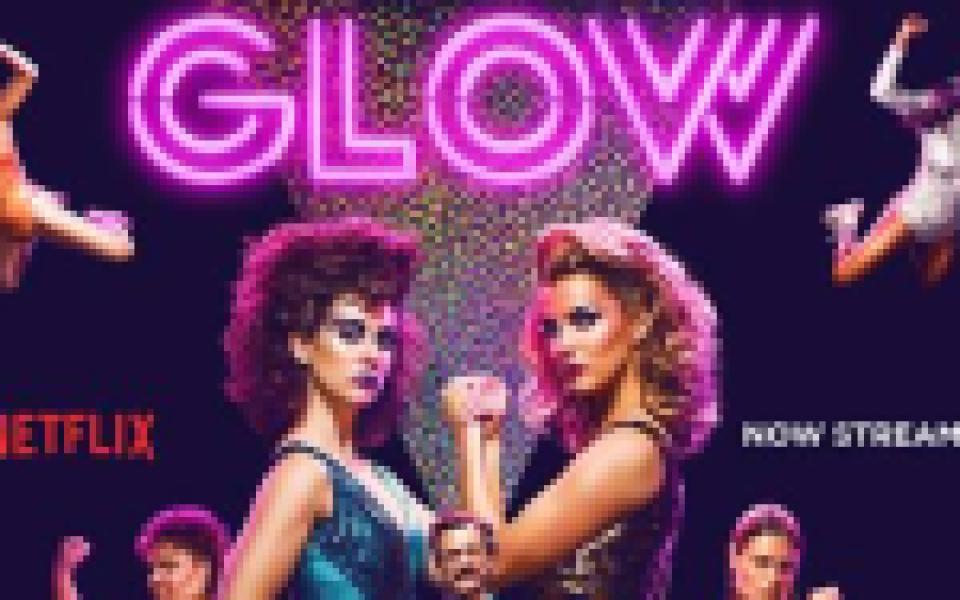The neon spandex and medley of permed tresses may signal an air of disingenuousness but the body slams and thigh-high bruises on Netflix’s new series “GLOW” — an acronym for Gorgeous Ladies of Wrestling — are real.
In the mid-’80s, a man with an inheritance and a vision solicited models and actresses to train as professional wrestlers for what became a hugely popular, syndicated show called “Gorgeous Ladies of Wrestling.” Last year, creators and showrunners Liz Flahive and Carly Mensch partnered with executive producer Jenji Kohan of Weeds and Orange is the New Black notoriety to fictionalize the campy, oddball series that premiered earlier this month.
Allison Brie, known for roles on “Mad Men” and “Community,” portrays Ruth Wilder, an endearing but petulant actress and anti-hero whose friendship with former soap star Betty Gilpin (Debbie Eagan of “Nurse Jackie”) unravels within the series’ first 20 minutes.
As 13 “unconventional” women train in an industrial gym, the somehow endearing, acrimonious former exploitation-film director Sam Sylvia (Marc Maron) barks orders from under his cocaine-powdered mustache and they learn that professional wrestling’s dependence on grandiose, pathos-driven plots will force them to assume reductive, often offensive personas in the ring.
Despite this, the budding athletes orchestrate their own storylines and in doing so tell a grander story about how women construct meaning and strategize for self-empowerment within the confines of the white supremacist patriarchy.[pullquote]Learn more about the original syndicate in the 2012 documentary “GLOW: The Story of the Gorgeous Ladies of Wrestling” on Netflix.com[/pullquote]
Throughout, “GLOW” is smart and self-aware without pretention. The writers’ handling of an abortion scene should be applauded as an example of how to humanize a character and normalize an ubiquitous, safe medical procedure rather than exploit the choice to advance plot or mark a “tragic” woman.
But “GLOW” is not necessarily a triumphant feminist production; though woman-centered, inclusive of different body types and featuring women from diverse cultural and ethnic backgrounds, writers could have lent more complexity and care to issues of race and veered further away from romanticizing misogyny in the workplace. Queer characters are notably underdeveloped, if not absent.
That said, the writers offer viewers the substance and ambiguity necessary for critical reflection; “GLOW” is a conversation starter, and an important one.
Most importantly, it’s not about the male gaze; it’s about exploring the ironic compassion and trust-building necessary to safely execute piledrivers and chokeslams, especially with one’s enemies. This is why “GLOW” is so daring: It highlights the constructive power of vulnerability and women’s creativity in a traditionally masculine space.
This, and it’s set to an effervescent ’80s soundtrack well-suited to a mid-summer binge.
Join the First Amendment Society, a membership that goes directly to funding TCB‘s newsroom.
We believe that reporting can save the world.
The TCB First Amendment Society recognizes the vital role of a free, unfettered press with a bundling of local experiences designed to build community, and unique engagements with our newsroom that will help you understand, and shape, local journalism’s critical role in uplifting the people in our cities.
All revenue goes directly into the newsroom as reporters’ salaries and freelance commissions.


Leave a Reply